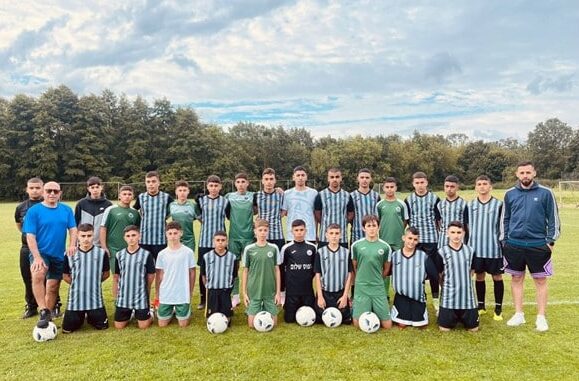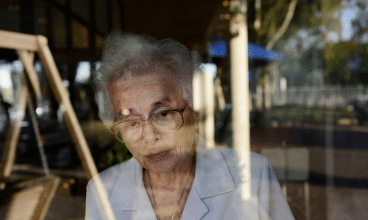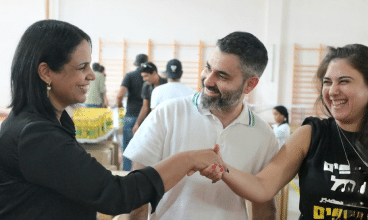Commitment to Remembrance and Education in the Hechingen Synagogue
As part of her Netzwerk Israel scholarship, Meirav Meidan got involved at the Old Synagogue in Hechingen. Meirav provided input on the exhibition on Jewish history, which is set to be revised in the coming weeks, and led workshops on current developments in Israel as well as on the topic of antisemitism.
Meirav Meidan is a scholar of Jewish Studies and teaches Jewish philosophy, mysticism (Kabbalah), and feminist perspectives on Jewish tradition. She teaches in Beit Midrash institutions, traditional Jewish study spaces, open to both religious and secular participants.
To Meirav, the Old Synagogue is more than a historical site, it is home. It’s where she meets friends, studies, and teaches. It’s a place she continually returns to. Her connection to Hechingen began years ago and was rekindled through the fellowship.
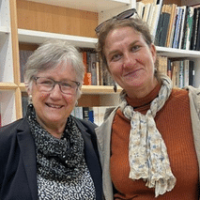
The history of the synagogue in Hechingen dates back centuries: as early as 1767, a new synagogue was built on this site. A Jewish community had existed in Hechingen since the 16th century. During the Nazi era, the synagogue’s interior was completely destroyed. After the war, the Jewish community in Hechingen ceased to exist, only a few Jewish residents survived the Shoah, some in exile, others locally.
“This space, now empty and desolate, bears silent witness to the murder, destruction, and devastation that was done in this holy place. It is a space where silence speaks. “, Meirav describes the atmosphere.
In the early 1970s, J. Anthony Gray and Henry Hofheimer, both originally from Hechingen and exiled in 1938, tried in vain to preserve the synagogue as a memorial. Only in 1979 did a group of committed citizens form the Hechingen Synagogue Initiative. Three years later, they were able to purchase the dilapidated building and began renovations. In the attic, they discovered a genizah, an archive for used religious texts. In 1986, the restored synagogue was reopened as a memorial and place for encounters.
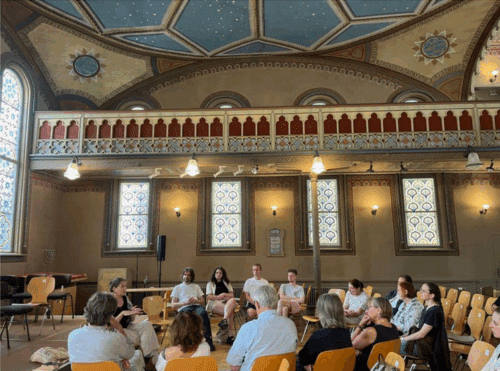
Meirav Meidan, all rights reserved
Impressions and Experiences
Meirav describes the synagoge: „The building of the synagogue is now complete, and its beauty is breathtaking. Standing in its hall beneath a painted dome of sky with stars one feels the majesty and splendor that are part of the experience of being in the house of God. when you look at the delicate painted walls or read the quotes in Hebrew you cannot help but feel calm. “
Today, the Old Synagogue is a vibrant space for cultural and interfaith exchange. Around 100 members are actively involved. Meirav continues to return, visiting friends, sharing the place with her family, and initiating new projects and events. She teaches, develops educational formats, and brings her perspective from Israel into the work.
The COVID-19 pandemic interrupted her visits to Germany. Two years later, she planned her return with a new project idea: a seminar on the four elements.
The October 7, 2023 attack marked a profound turning point – both for Meirav’s situation in Israel and for her connection to Hechingen. Meirav describes feeling as though she had been thrust back into one of the darkest periods in Israel’s history.
For the first time, she hesitated to travel to Germany: „for the first time, I was afraid to return to Germany—not necessarily for my own safety, but because I was worried about the atmosphere regarding Israel. Would people be willing to see our suffering? Would criticism of Israel become mixed with the new antisemitism, blocking any possibility of dialogue? ”
Her planned project had to be postponed again. Thanks to the Network Israel fellowship, supported by the Foundation Remembrance, Responsibility and Future, Meirav was able to travel to Germany in May 2025 for the first time since October 7.
Returning to Hechingen gave her confidence. She was relieved to find friends and partners still present.
She was relieved to find friends and partners still present. Despite differing opinions, she encountered understanding and solidarity: „Within the committee of the Hechingen Synagogue Initiative, we asked ourselves: We want to express solidarity with Jewish people in Israel – but does that exclude solidarity with Palestinians? Is it our task today to stand in solidarity with Jews in Israel, or/and should we also try to raise our political voices? Although we had different opinions, I felt I was among friends – and still part of this community. .“
Outlook
As part of the scholarship, Meirav once again worked closely with the synagogue initiative. She provided valuable input for the current exhibition, held numerous conversations, built new connections with committed individuals, and organized workshops as well as open discussion rounds, including with school classes.
This experience particularly moved her: “The pupils, some of them came from the enemy countries like Syria, Iran, or Afghanistan, yet they heard me with an open heart. They were listening carefully and respectfully asked questions and showed real interest. For me that was very important. It felt that with them the door was open for a conversation. “
For the future, Meirav has many new ideas to further strengthen the connection between Israel and Germany, especially between Hechingen and Israel. For example, she would like to realize a project on Jewish holidays for the 40th anniversary of the synagogue’s reopening in 2026. The aim is to make Jewish life more visible, for instance through an exhibition where prayers can be heard and information about the holidays is made accessible.
Where you can provide support
